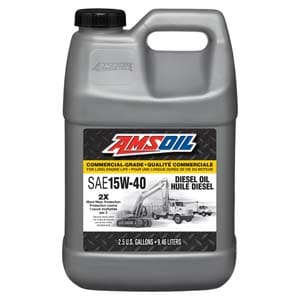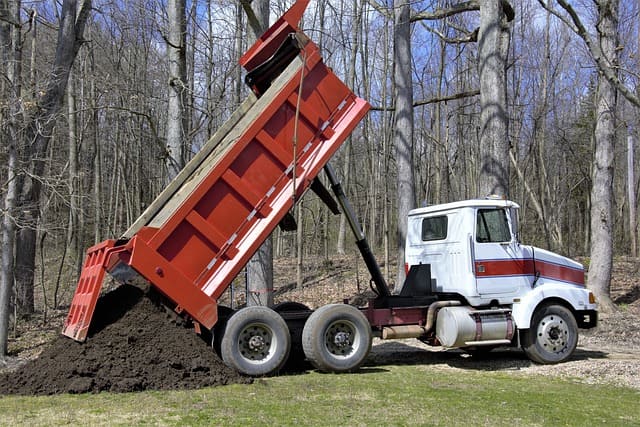When it comes to picking the right oil for your Freightliner* 114SD trucks, deciding between synthetic and conventional oils can get pretty confusing. Each type has its own perks and things to think about, and knowing the differences is super important for keeping your engine in top shape. In this post, we’re diving into the battle of synthetic versus conventional oils for Freightliner* 114SD trucks, so you can choose what’s best for your fleet’s maintenance needs!
Comparing Power and Efficiency: Freightliner* 114SD Engine Selection
The Freightliner* 114SD, featuring the reliable Cummins* ISL engine, is known for its robust performance. The Cummins* ISL engine is designed to deliver impressive power, with a horsepower range of 280 to 400 HP. Additionally, this powerhouse boasts a substantial torque range of 700 to 1255 ft-lbs, ensuring optimal performance in various working conditions. The Cummins* ISL engine manufacturer recommends utilizing oil viscosities of either 15W-40 or 5W-40 for optimal performance. The engine’s oil capacity is specified at 7.3 gallons, ensuring sufficient lubrication and protection for the engine components.
The Freightliner* 114SD is a versatile truck model that offers the option of being outfitted with a robust Detroit Diesel* DD13 12.8L engine. This powerhouse of an engine boasts an inline 6-cylinder configuration with a displacement of 781 cubic inches (12.8 liters) and a compression ratio of 20.3:1. When it comes to performance, the DD13 engine delivers a horsepower range of 370-525 and 425-450 in the IDP variant, along with impressive torque figures of 1250-1850 lb-ft and 1750 lb-ft in the IDP version. The two recommended engine oil viscosities for optimal performance are 10W-30 or 5W-30 diesel engine oil. When selecting the appropriate oil viscosity for your engine, it is crucial to consider factors such as temperature variations, engine design, and operational conditions. Choosing the correct viscosity grade ensures proper lubrication at different temperatures, protecting engine components from wear and tear. It is essential to adhere to the manufacturer’s recommendations to maintain engine efficiency and longevity. For routine maintenance such as an oil and filter change, the engine requires a service fill of 40 quarts (38 liters), ensuring optimal performance and longevity.

Understanding the Basics: Synthetic Oil
Synthetic oils are engineered in a lab to provide superior performance and protection for modern engines. These oils are formulated with carefully selected base oils and additives to offer enhanced lubrication, stability, and resistance to thermal breakdown. Synthetic oils flow better at low temperatures, ensuring quicker engine startup and improved cold-weather performance. They also maintain their viscosity and protective properties at high temperatures, reducing wear and friction on engine components.
Exploring the Benefits of Synthetic Oils
- Enhanced Engine Protection: Enhanced engine protection is a key benefit of using synthetic oils in Freightliner* 114SD trucks. These oils create a durable protective layer on engine components, which effectively reduces friction and minimizes wear and tear. This ultimately extends the engine’s lifespan.
- Improved Fuel Efficiency: In addition, synthetic oils contribute to improved fuel efficiency by providing superior lubrication properties that reduce drag and internal resistance.
- Extended Oil Change Intervals: By using synthetic oils, Freightliner* 114SD operators can benefit from extended oil change intervals compared to conventional oils. This helps in saving time and reducing maintenance costs in the long run.
- Better Performance in Extreme Conditions: Synthetic oils also offer better performance in extreme conditions, making them ideal for Freightliner* 114SD trucks that operate in challenging environments with fluctuating temperatures and heavy-duty applications.
Decoding Conventional Oil: Is It Still Relevant?
Conventional oils, also known as mineral oils, are derived from crude oil and undergo minimal processing compared to synthetics. While conventional oils may be more budget-friendly, they lack the advanced additives and performance benefits of synthetic oils. However, for older engines or light-duty applications, conventional oils can still provide adequate lubrication and protection.

Comparing Synthetic and Conventional Oils for Freightliner* 114SD Trucks
- Performance: Synthetic oils offer superior performance and protection, especially for modern diesel engines with advanced technology and emission control systems.
- Cost: While synthetic oils may have a higher upfront cost, their extended oil change intervals and better engine protection can result in long-term cost savings.
- Compatibility: Check your engine manufacturer’s recommendations to ensure compatibility with synthetic oils, especially for warranty considerations.
🚚 Looking for top-notch engine protection?

The AMSOIL 15W-40 Commercial Grade Diesel Oil is a game-changer for your Freightliner* 114SD with a Cummins* ISL engine. 💪 Delivers 2X more wear protection, ensuring your engine runs smoothly for longer. 🛠️ Ready to take your vehicle’s performance to the next level? Drop a comment below and let’s discuss how AMSOIL can optimize your engine’s performance!
🚚 Upgrade your diesel engine performance with AMSOIL 10W-30 Commercial-Grade Diesel Oil for your DD13 engine! 💪

Contains over 50% synthetic base oil for superior protection and efficiency. Ready to take your fleet to the next level? 🛠️ 🚛
Conclusion: Making the Right Choice
When it comes to picking between synthetic and conventional oils for your Freightliner* 114SD trucks, the champion is decided by what you need and how you drive. If you care about keeping your engine healthy, saving on fuel, and boosting overall performance, synthetic oils are the way to go. But if you’re rolling with an older truck or tackling lighter tasks, conventional oils can still give you solid lubrication without breaking the bank.
To choose the perfect oil for your Freightliner* 114SD trucks, think about stuff like how old your engine is, the conditions you drive in, and what the manufacturer suggests. Your decision should focus on keeping your engine ticking smoothly and performing its best. Just remember, the oil you go with is key to keeping your truck’s heart beating strong, so choose wisely for a smoother journey ahead.

*All trademarked names and images are the property of their respective owners and may be registered marks in some countries. No affiliation or endorsement claim, express or implied, is made by their use.
